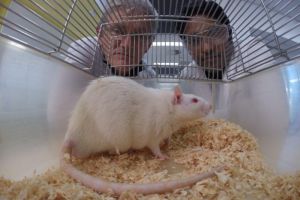Scientists in Queensland have found a super plum, that can fight obesitas. Well, it seems to reduce fat in rats. At least at the short term. But there are many problems with this kind of research findings.
First it’s quite surprising to hear scientists say that they had no idea that food could actually be medicine. Where have they been hiding? “Let your food be your medicine and your medicine be your food” was a saying from Hippocrates more than 2000 years ago. But of course anno 2015 we don’t talk about just healthy food, we talk about superfoods. Foods that can undo all the damage that is done by the junk food most people consume in large amounts.
What is happening here? Scientists try to find something that is actually just a drug, but then with a more natural sound to it. They want something that meets the demands of the people for a simple solution to a complicated problem. For people don’t want to drastically change their lifestyles and start to eat a really healthy diet. They want to keep stuffing themselves with rubbish, eat a few super plums for dessert and stay slim forever. “If it sounds to good to be true, it usually is” definitely applies here.
There are different reasons why people are obese and it’s not just bad diets. Environmental reasons (e.g. toxins everywhere you go) do affect our hormones and metabolisms. But it’s rarely the only reason why people are overweight. The main reason is the truckloads of sugar people consume. That starts with baby formula, then goes to all the sugary foods marketed at children and ends with soft drinks, biscuits, pizza’s and frozen meals for the adults. Many young adults have hardly any idea anymore how to cook a meal from scratch. And many really don’t know what processed food means. And that’s where the cause of obesity is found: in the supermarket. That same supermarket that will sell the super plums that should deal with the same obesity.
Will these plums really work? That’s very unlikely. They will be healthy fruit and maybe even a bit healthier than ordinary plums. But there is no food that can solve your life style problems. You can only do that yourself.
The article doesn’t say how the study was done. How did the rats become obese? How long had they been obese? How much plum juice did they get? How quickly did they get back on their old weight after stopping with the juice? Did they live any longer and any healthier? Did their diets change in any other way? If they kept consuming the juice, did the effect last?
The scientists will now start with human trials. Will they disclose how those studies will be set up or will we also have to be guessing? Even if in carefully organised trials it will appear that there is some effect, then what is the chance it will also work in real life? Let’s face it: no matter how they market it and no matter how much research money these people get, there will never be a food that on its own can undo the damage of a bad lifestyle.
But even if everything would work out and this fruit would indeed do the impossible and really solve the obesity problem: who can afford this kind of fruit on a daily basis? Yes, only the rich or the very rich, which are exactly the people who on an average already have reasonably healthy diets. So there are two options: these plums will become a status symbol for those who can afford it. Or (and I would think that’s the most likely option): a drug will be developed based on this fruit and some kind of pharmaceutical company will try to make billions of dollars with it.